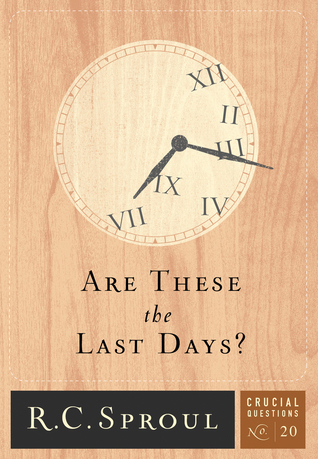I read from the Beyond Suffering Bible.
How many books by J.C. Ryle did I read this month?
I didn't finish any. But I read from Old Paths. It is WONDERFUL.
Favorite quote(s) by J.C. Ryle:
The true Christian is not justified because of any goodness of his own. His peace is not to be traced up to any work that he has done. It is not purchased by his prayers and regularity, his repentance and his amendment, his morality and his charity. All these are utterly unable to justify him.
Christ has stood in the place of the true Christian. He has become his Surety and his Substitute. He undertook to bear all that was to be borne, and to do all that was to be done, and what He undertook He performed. Hence the true Christian is a justified man. (Isaiah 53:6.)
Christ has suffered for sins, the “just for the unjust.” He has endured our punishment in His own body on the cross. He has allowed the wrath of God, which we deserved: to fall on His own head. Hence the true Christian is a justified man. (1 Peter 3:18.)
Christ has paid the debt the Christian owed, by His own blood. He has reckoned for it, and discharged it to the uttermost farthing by His own death. God is a just God, and will not require his debts to be paid twice over. Hence the true Christian is a justified man. (Acts 20:28; 1 Pet 1:18-19.)
Christ has obeyed the law of God perfectly. The devil, the Prince of this World, could find no fault in Him. By so fulfilling it He brought in an everlasting righteousness, in which all His people are clothed in the sight of God. Hence the true Christian is a justified man. (Daniel 9:24; Romans 10:4.)
Christ, in one word, has lived for the true Christian. Christ has died for him. Christ has gone to the grave for him. Christ has risen again for him. Christ has ascended up on high for him, and gone into heaven to intercede for his soul. Christ has done all, paid all, suffered all that was needful for his redemption. Hence arises the true Christian’s justification,--hence his peace. In himself there is nothing, but in Christ he has all things that his soul can require. (Colossians 2:3; Colossians 3:11.)
Favorite quote(s) by Charles Spurgeon:
Whatever your especial need may be—you may readily find some promise in the Bible suited to it.
Banquet your faith upon God’s own Word, and whatever your fears or needs, repair to the Bank of Faith with your Father’s hand-written note, saying, “Remember the Word unto Your servant—upon which You have caused me to hope.”
How many books by R.C. Sproul did I read this month?
I read four books.
The Glory of Christ. R.C. Sproul. 1990. 223 pages. [Source: Bought.]
What is the Relationship Between Church and State? Crucial Questions #19. R.C. Sproul. 2014. 47 pages. [Source: Free download]
Are These The Last Days? (Crucial Questions #20) R.C. Sproul. 2014. Reformation Trust. 55 pages. [Source: Free download]
Are People Basically Good (Crucial Questions #25) R.C. Sproul. 2016. 70 pages. [Source: Free download]
Favorite quote(s) by R.C. Sproul:
Christ is a restoration of humankind, the image of God in its fullest manifestation, so much so that even in His humanity, Jesus was correct to say, “Whoever has seen me has seen the Father.” In saying this, He did not deny His humanity, nor was He speaking only of His humanity. But if Jesus’ humanity is a perfect humanity, and if He displays the image of God in its fullest sense, then to look at Him is to behold the glory of the Creator.Did I read any Puritans or Reformers this month:
In the legacy of the Reformers, yes. Actual Puritans or Reformers? No.
Favorite quote(s):
If God has chosen to use such terms as righteousness, justification, sanctification, redemption, atonement, reconciliation, propitiation, then it is our duty to face those terms and to consider their meaning; it is dishonoring to God not to do so. ~ Martyn Lloyd-JonesDid I complete at least one book from the TBR Pile challenge? Which one?
Yes.
A Hobbit, a Wardrobe, and a Great War. Joseph Loconte. 2015. Thomas Nelson. 256 pages. [Source: Bought]
Other Christian nonfiction books read this month:
Lloyd-Jones on the Christian Life: Doctrine and Life as Fuel and Fire. Jason Meyer. 2018. Crossway. 272 pages. [Source: Review copy]
T is for Tree. Connie L. Meyer. 2018. Reformed Free Publishing Association. 32 pages. [Source: Review copy]
Lewis on the Christian Life: Becoming Truly Human in the Presence of God. (Theologians on the Christian Life). Joe Rigney. Edited by Stephen J. Nichols and Justin Taylor. 2018. Crossway. 320 pages. [Source: Review copy]
Christian fiction books read this month:
A Breath of Hope. Lauraine Snelling. 2018. Bethany House. 336 pages. [Source: Review copy]
Strawberry Girl. Lois Lenski. 1945. 208 pages. [Source: Bought]
How many "new" books did I read (published 2000-present)? EIGHT
How many "old" books did I read (published before 2000)? TWO
Which book was my overall favorite?
Lloyd-Jones on the Christian Life: Doctrine and Life as Fuel and Fire. Jason Meyer. 2018. Crossway. 272 pages. [Source: Review copy]
© Becky Laney of Operation Actually Read Bible







